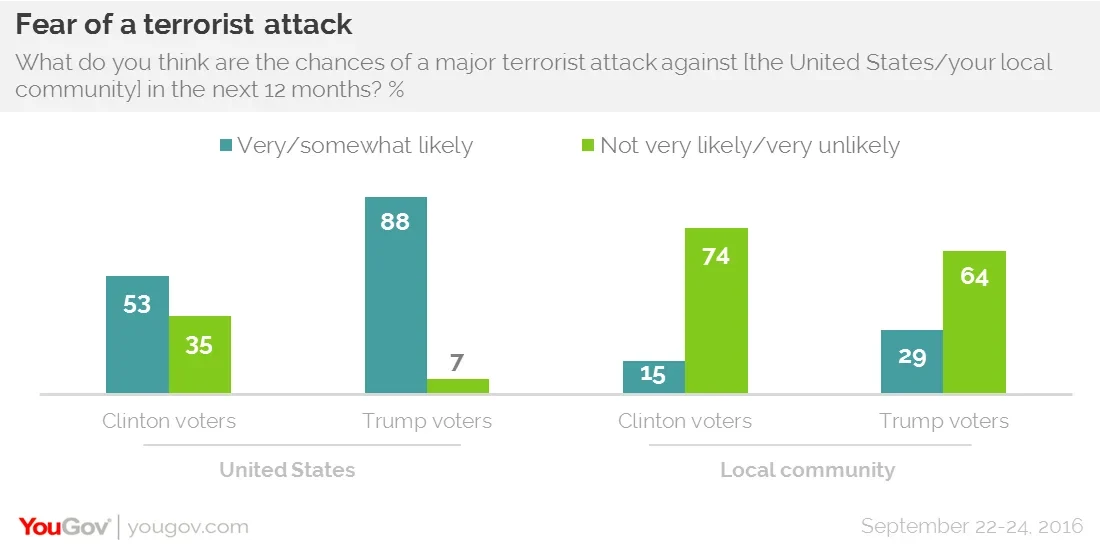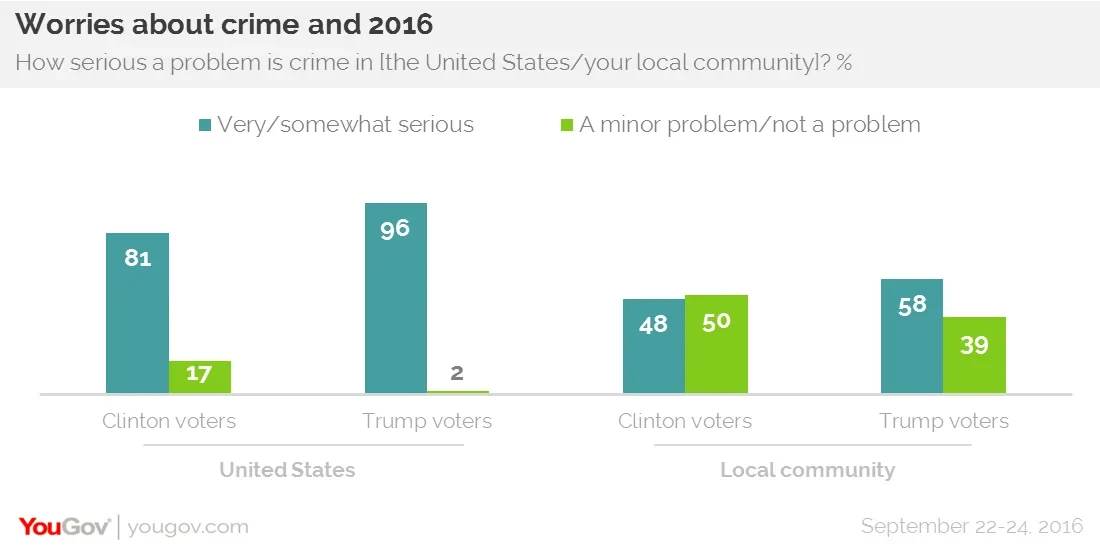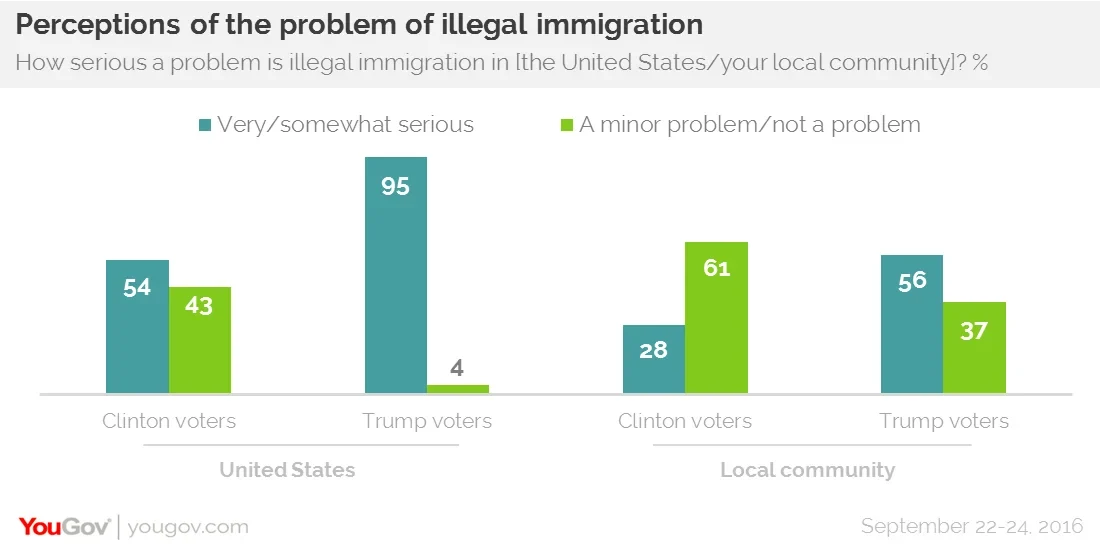Trump supporters are significantly more likely to view terrorism, crime and illegal immigration as threats than Clinton supporters
Terrorism, crime, illegal immigration and unemployment – these have all been highlighted by the Republican presidential nominee in his campaign. Donald Trump has linked immigration to both terrorism and crime, and in his GOP Convention acceptance speech also blamed job loss on immigration, saying: “Decades of record immigration have produced lower wages and higher unemployment for our citizens, especially for African-American and Latino workers.” These issues motivate many of his voters today as they did during the primary season.
Then, Republican primary voters who supported Donald Trump were more worried about immigrants and the possibility of a terrorist attack than were voters who supported the other GOP candidates. In the general election, the latest Economist/YouGov Poll finds the same thing – Trump voters are much more concerned about a host of threats – from immigrants, from terrorists, about crime and about unemployment.
But what is clear now is that while Trump voters see a dangerous world, they don’t necessarily see that threat as one to their persons, families, or communities. It is more a concern about something happening somewhere else – unspecified – in the country.
For example:
- 58% of Trump voters believe the possibility of a major terrorist attack somewhere in the United States is very likely in the next year. That’s nearly four times the number of those who currently favor Democratic nominee Hillary Clinton saying this.
- But few supporters of either candidate think a major terrorist attack in their own community is very likely, and an equal proportion of Clinton and Trump supporters (about one in five) say they are “very concerned” about the possibility of they are their they or their loved ones becoming a victim of terror.

While the percentages expressing a great deal of concern about personal loss from terrorism is similar, Trump voters are more likely that Clinton voters to express at least some concern.
The same pattern holds for crime. Clinton voters and Trump voters are equally likely to view crime as a very serious problem in their own communities (about one in five of each candidate’s voters think this), and there is not much difference when it comes to personal worries about being a victim of crime (there are, however, very large racial differences on crime victimization fears – more than twice as many African-Americans as whites are very concerned about being a victim of a crime).
But when it comes to crime in the country, there are enormous differences between Trump and Clinton voters. 81% of Trump supporters describe it as a very serious problem in the country at large, compared with 39% of Clinton supporters.

The vast majority of his supporters agree with Trump about a link between Illegal immigration and terrorism and crime. 81% of Trump’s voters believe illegal immigration is a very serious national problem. That’s more than three times the percentage of Clinton supporters who say that. This is the one issue on which Trump voters are also more likely than Clinton voters to think that illegal immigration is a very serious problem in their own community, and to believe they or a loved one is very likely to be hurt by an illegal immigrant. But there is a much greater perception of a threat to the country.

The economic threat of unemployment presents a somewhat more muted picture of voters concerns, although once again, differences about the seriousness of the problem are more focused among Trump Voters, who also express more concern at the national than at the local or personal level.
Why do Trump supporters find threats at the national but not the local level? The public has two sources of information about national issues – personal experience and the news media. Historically, news media has meant broadcast and print. The rise of internet news sources has meant a greater individualization of the news voters receive.
But voters still must get most of their information about the state of affairs in the country from the media, as opposed to learning about the state of the country from personal experience. Two political scientists made this case about economic impact on voting – that the impact comes from what people think about conditions in the country as a whole more than from their own personal situation, which they must learn about from media -- or perhaps from a political campaign. Terrorism, unemployment, crime and immigration concerns – at the national level – are part of Trump campaign speeches. Trump talks about the issues as national ones. In this poll, nearly two-thirds of his voters have very serious concerns about at least three of those issues – but only at the national level. Hardly any express personal concerns or community worries at the same level about that many.
There actually is one issue about which Clinton supporters are more worried: 25% of Clinton voters are very concerned about the spread of the Zika virus in the country, compared with 15% of Trump supporters. And when it comes to their local community, 17% of Clinton supporters express the highest level of concern, compared with just 6% of Trump voters. Zika and government funding to fight it has not yet played a major role in the campaign.









